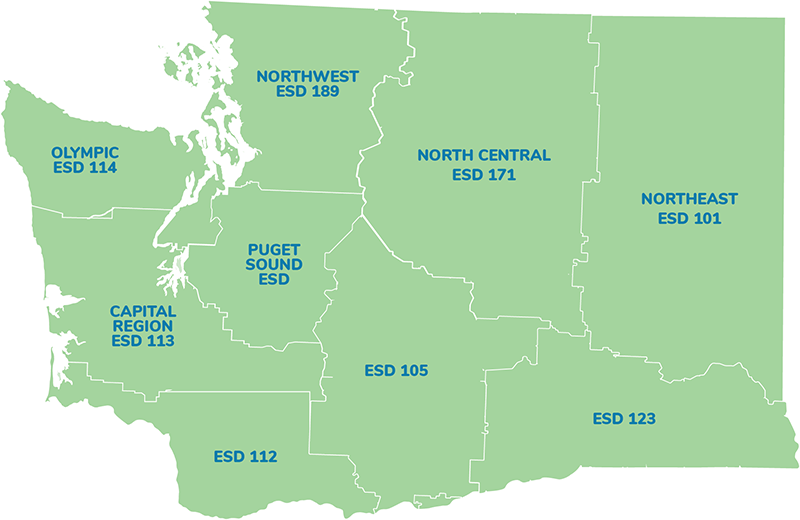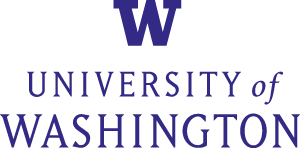Covid-19 Adaptations
to support the ClimeTime network

Overview
In response to the COVID-19 pandemic, the ClimeTime leadership team and partner organizations adapted the network and project activities in several ways. First, the network convening held in March 2020 was modified into a two-day virtual gathering. Network leaders also provided ongoing support to partner organizations to complete their grant activities using remote learning techniques for the year to continue building educators’ capacity for NGSSaligned and climate learning.
Network Convening
What We Did
The network convening scheduled for March 2019-20 was adapted into a virtual format involving eight hours of engagement each day. Network leaders intentionally designed the gathering to include many interactive activities and opportunities for movement, including walk and talks, use of breakout rooms for group discussions and project work, and collaborations on color-coded slide decks. This rapid adaptation required close coordination and substantial planning by the leadership team in order to model strategies for online facilitation that continue to be essential for remote forms of professional learning during COVID-19.
What We Learned
One key insight that emerged from this re-design process was to focus on the most important aspects of a learning experience. In order to maintain participant energy and engagement in a virtual context, network leaders eliminated some of the originally scheduled activities to concentrate on essential components. In reflecting on the convening, the leadership team recognized the need to arrange online gatherings in shorter segments, over the course of more days, and with more built-in breaks. This learning directly informed the design of the ClimeTime virtual conferences designed for Washington educators later in the spring (see ClimeTime Network Virtual Conferences: A COVID-19 Adaptation to Support WA Educators for more details).
Grantee Support
What We Did
In addition to the March convening, ClimeTime network leaders provided support for grantees in adapting their project activities in response to the COVID-19 pandemic. For example, members of the leadership team offered slide templates and shared strategies for facilitating virtual learning and connecting with educators. They served as thought partners for adjusting to the opportunities and constraints of online contexts, such as shifting from full-day trainings to shorter sessions over the course of multiple days. Regional science coordinators across the state also offered crucial partnership support for community-based grantees to reach teachers with these modified professional learning opportunities. Finally, resources on how to think about home-based learning and decenter virtual only learning in the context of grantee work were also provided and explored.
What We Learned–and How We Are Imagining Forward
Learning and working together as a network continues to open new possibilities for climate science learning that is responsive to emergent needs in the COVID moment and beyond. Partner organizations are imagining and strengthening place-based and community-based approaches, such as home-based and family-centered science learning (See resources on supporting home-based learning or Learning in Places), sensemaking with local phenomena, leveraging video libraries and other technological resources (such as CLEAN resources or Ambitious Science Teaching video library), and facilitating synchronous or asynchronous outdoor learning experiences (such as those from NEEF and NAAEE). These innovations offer ways to rethink the structures of formal schooling, in part through learning from the deep expertise of informal and community-based educators.
Throughout these ongoing innovations, network leaders and partners are centering equity and access to consequential learning for students and educators. Ongoing challenges include, for example, access to local outdoor spaces, inclusive practices for students receiving special education services, and availability of virtual learning technologies. Equity concerns are also central in partnership relationships, specifically in considering and enhancing the capacity of differently situated organizations to ensure that educational organizations maintain the resources needed for equitable climate science learning.
For more information contact:
Ellen Ebert, Science, Environmental and Sustainability Director, OSPI
ellen.ebert@k12.wa.us
Elizabeth Schmitz, Science, Environmental and Sustainability Education Program Supervisor, OSPI
elizabeth.schmitz@k12.wa.us
Cheryl Lydon, Science Program Manager, Puget Sound ESD 121
clydon@psesd.org
Deb Morrison, Learning Scientist, University of Washington
eddeb@uw.edu
Philip Bell, Professor, University of Washington
pbell@uw.edu

Project Partners



Feedback
The ClimeTime network really assisted us with putting our last session online and sharing ways to reach teachers during the COVID crisis. (…) The addition of the virtual conferences allowed our project to reach across the state to lend our expertise around taking students outside to teachers we wouldn’t normally be able to reach.
By hosting trainings online, Washington Green Schools is able to accomodate teachers from school districts across the region. And by eliminating travel, we’ve decreased our carbon footprint too!
